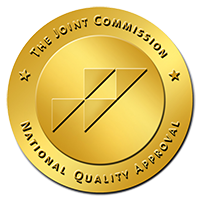Immunizations are an essential part of prenatal care, offering critical protection to women and their fetuses against potentially deadly diseases. The Centers for Disease Control and Prevention (CDC) Advisory Committee on Immunization Practices recommends that women who are pregnant receive an inactivated influenza and a tetanus/diphtheria/acellular pertussis (Tdap) vaccine in every pregnancy (1). The American Academy of Family Physicians; American College of Nurse-Midwives; American College of Obstetricians and Gynecologists; and Association of Women’s Health, Obstetric and Neonatal Nurses strongly support this recommendation. As professional organizations whose members care for pregnant women, we affirm the importance of recommending and advocating that pregnant women receive all recommended vaccines at the appropriate time during each pregnancy. The current increase in hesitancy about the safety and efficacy of vaccines has created an environment that calls for our urgent commitment to discussing the evidence-based benefits of vaccination with pregnant women.
Are vaccines safe during pregnancy?
Certain vaccines are safe and recommended for women before, during, and after pregnancy to help keep them and their babies healthy. The antibodies mothers develop in response to these vaccines not only protect them, but also cross the placenta and help protect their babies from serious diseases early in life. Vaccinating during pregnancy also helps protect a mother from getting a serious disease and then giving it to her newborn.
Which vaccines should I get if I am pregnant?
If you are pregnant or planning a pregnancy, the specific vaccines you need are determined by your age, lifestyle, medical conditions, travel, and previous vaccinations.
If you are planning a pregnancy, talk with your healthcare provider about getting up to date on all your vaccines. Some vaccines, such as the measles, mumps, rubella (MMR) vaccine, should be given a month or more before pregnancy. Your healthcare provider can help you determine if you need this or any other catch-up vaccine.
Talk to your primary care provider to learn about immunizations and whether receiving immunizations is the right choice for you.
Sources:
https://www.acog.org/programs/immunization-for-women/activities-initiatives/immunization-for-pregnant-women-a-call-to-action
https://www.cdc.gov/vaccinesafety/concerns/vaccines-during-pregnancy.html#:~:text=CDC%20recommends%20that%20pregnant%20women,vaccine)%20and%20the%20Tdap%20vaccine.



